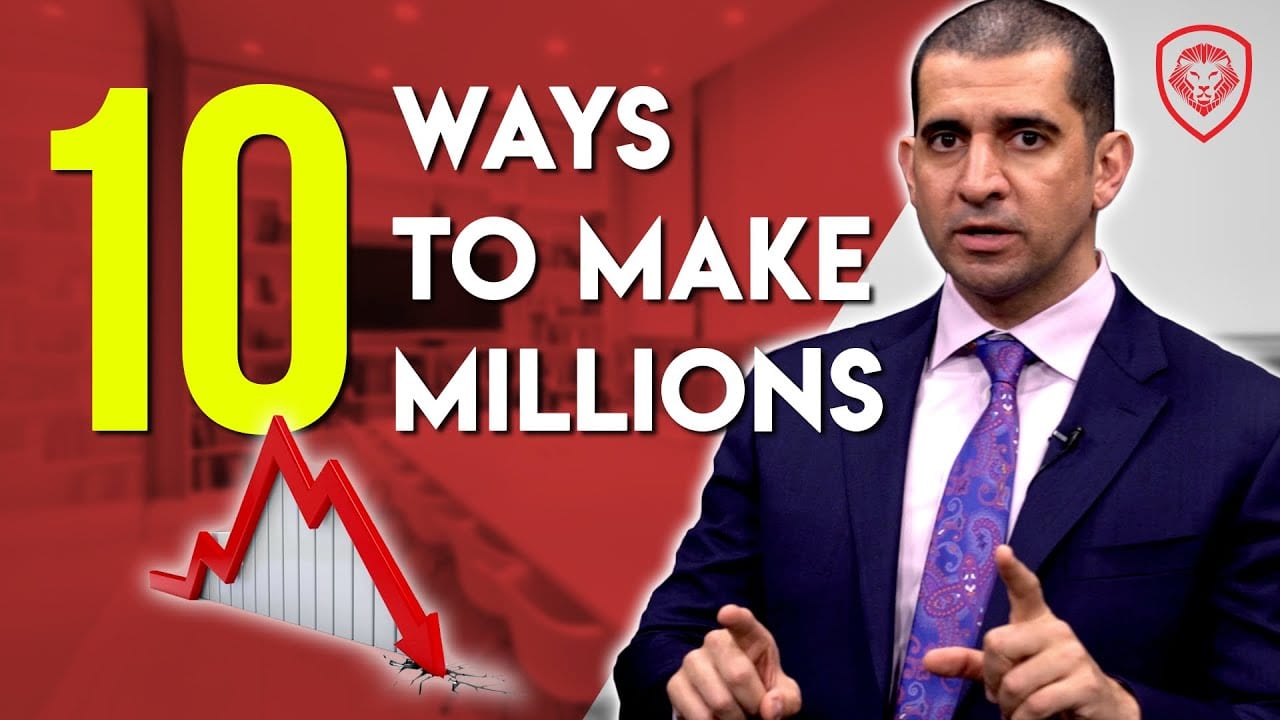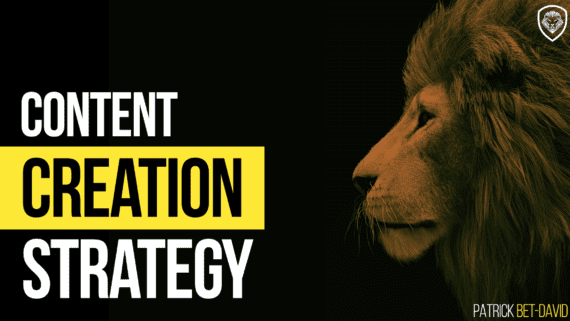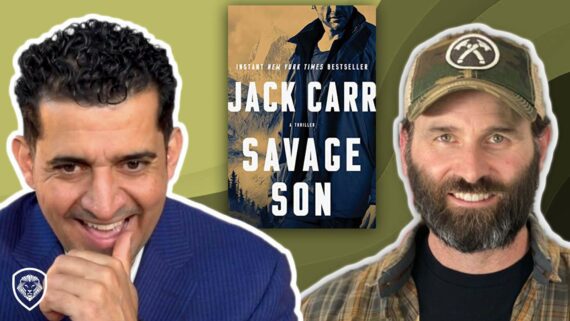NEXT MARKET CRASH: 10 Ways To Make Millions As An Entrepreneur
A couple of months ago I did a video titled Eight Ways to Prepare for the Next Market Crash. That video was coming from the standpoint of the investor, how you should prepare as an investor when the market crashed takes place. Many of you say, well Pat, “What about me as the entrepreneur? What do I do to prepare for the next market crash as the entrepreneur?” Today, in this video I’m going to give you 10 ways to make millions during the next market crash. A couple of days ago I was at Las Vegas at the Venetian, spending some time with other CEOs, from the insurance and financial industry and we were talking about different kinds of things. Cybersecurity preparation opportunity was one of the topics that came up and how are you preparing yourself for the next market crash?
One person felt like the crash wasn’t going to happen for another couple of years and in the meantime, they were going to try and capitalize on the market now because they were making so much money right now. This conversation reminded me of another conversation I had back in the day as I was coming up. I was on a drive up to Lake Arrowhead with four other leaders ahead of me. That conversation, during that drive, leads to the decision-making process that brought about a lot of change 13, 14, 15 years later. But before I shared a story with you, I want to first share six time periods with you that will give you an idea about when the next market crash will be taking place.
Look at the chart in the video of the longest economic expansions we’ve ever had in the last 118 years in the US since 1900. The US housing bubble lasted 74 months. You remember the one that went from November of 2001 lasted until December of 2007. The next one happened in the lead up to World War Two, 81 months. It went from June of 1938 to February of 1945. The next one, Reaganomics Cold War went from November 1982 to July of 1990. The Vietnam era lasted 108 months. The current one we are in right now has lasted for 115 months. The number one longest economic expansion is the tech bubble for 122 months.
This is like if you grew your business for 115 straight months, eventually something happens. Historically, we have a crisis that happens every five years, but we have a massive crisis that happens about every decade and then every 20 years something pretty wild happens that impacts thousands of people’s lives. So now what typically happens during these times, you fail to realize as the market is expanding the way it has always done. Instead, we get greedy, we get soft, we lose our edge.
Right now, if you’re an entrepreneur, you’re watching this and you’re saying, Pat, “I don’t really get it.” Billions, if not trillions are made post these timelines, not just during. I’ll give you a perfect example. Nobody wanted to get into stocks, bonds, mutual funds after the housing bubble but that’s when I got in. I go and negotiate a big contract, with one of the largest insurance companies in the world at a time when nobody was doing it, and everybody called us crazy. But these are the opportunities and obviously, a lot of money’s been made.
Let’s talk about the 10 points. How do you make millions during these times?
-
You’ve got to Monetize Fear
Monetizing fear is not just about you. You must ask yourself, when this happens in my industry, as an entrepreneur, how can I monetize everyone else’s fear? For example, how are my clients going to be afraid? How can I monetize that and help them out? How are my competitors going to be afraid? How can I monetize that? How are my vendors are going to be afraid? How can I monetize that? You’ve got to monetize every fear that comes out of a market downturn. If you monetize fear, you become the solution for it.
-
You Exploit the Unprepared
Now some people say, Pat, “I don’t like that word exploit. Isn’t that a negative word?” They use it in sports all the time. Exploit their defense, exploit their lack of offense, exploit their lack of pitching, exploit their lack of hitting, exploit their lack of coaching, exploit whatever the weakness the opponent has. When this happens, you got to exploit the cocky people because every industry has cocky people. What happens when the market goes up? People get casual, people get comfortable, people get more confident. People get cockier. This is a perfect time to prepare yourself for now, here’s what you got to realize.
If you knew for a fact the market crisis is going to happen next six months or however many months, how would you be prepared for it? Have you thought about it? That’s the whole idea about exploiting the unprepared. Who are the cocky people? Assume none of your competitors are going to watch this video, but you are watching this video. How can you take advantage of that opportunity for yourself?
-
Deliver Comfort
When a crisis happens, heroes are born. This is when you can bring comfort to a client, to an investor, to a competitor, to an employee, to a salesperson, to a vendor, to so many different people by delivering comfort, delivering security, delivering a safety net.
So, ask the question in my industry, “What do I do? How can I deliver security to x, y, and z?” You saw a lot of banks that were saying, “Because of what took place with 9/ 11 or because of the mortgage crisis, we will go ahead and forgive your mortgage payment for 90 days.” They delivered comfort during the time when clients needed it. When the tough times come, deliver comfort and you will receive loyal customers.
-
Network like Jerry Maguire
If you’ve seen the movie Jerry Maguire, you know the famous line, “Show me the money!” The story is about Jerry Maguire, a sports agent at a big agency. He writes this big report, he eventually gets fired, and everybody takes his clients. So, he fights hard to win his clients back. Slowly his clients start coming back because his opponent looked at everybody as a dollar amount of renewable contract, not as a person. There’s a famous scene what a client, Cuba Gooding Jr, and this scene and this guy says, “How come we don’t hug? How come we don’t have cars?” They’re hugging each other, celebrating. Then the agent goes to hug him, and he elbows and like this and get off me.
This is when you go and meet with every single one of your clients. You go shake their hands. You go sit down and talk to them. A lot of times when the market crashed takes place, people are afraid of the phone calls. People don’t want to talk to their clients. They’re afraid that the clients are upset. Of course, they’re upset. Of course, they’re afraid. Of course, they’re panicking, but it’s the perfect time for you to go network like Jerry Maguire and get those relationships to be stronger.
“Listen, John, this wasn’t easy to pick up the call. I know this is a difficult time, but I want you to know something. We’re going to go through this together. Let me share with you what I’m thinking about.” That doesn’t mean they’re going to be happy with everything that’s taken place. It just means they realize you’re in the trenches with them. I cannot tell you how much this helps you.
-
Doubled Down on your Message
Whatever your cause is for your company, whatever you do – double down on telling that message over and over again. You may need to adjust your story slightly accordingly to the market crash, but double down on your message.
Here’s what we do for families. Here’s what we do as a company. This is what we stand for. This is our history. This is what we’re doing longterm. This is our vision. Double down on your message nonstop because it keeps everybody on your team focused on the bigger picture rather than all the small stuff that’s taking place on a daily basis.
-
Cut the Fat Before the Crash
Your brain during the crash is trying to handle 42 different issues because you didn’t cut the fat. Your opponent’s brain has only nine issues to worry about. Have you ever sat in a meeting with an employee with a customer, and that person’s talking to you and for like seven minutes? You’re not in the room. You’re thinking about how you’re going to fix your mortgage. You’re thinking about how you’re going to handle that payment. You’re not present at that moment. Another person who is present in the moment, they’re going to outdo you because they cut the fat before the crash that took place.
I’ll give you a perfect story. I was coming up in the industry. I was probably making a couple hundred thousand dollars a year. We were going to Lake Arrowhead and everybody in this car is ahead of me. The guy sitting in the front, He’s got a couple of million dollars in a bank account. He’s telling his mentor, “Hey, I’m thinking about buying this house. It’s a $4,000,000 house. I want to build this place up and it’s so exciting.”
He asked the number one competitive guy sitting to my left. “What do you think he should do?” He said to him, “While you’re working very hard, I think you should go out and buy your house. What is the whole purpose of making all this money? You deserve it.”
Then asked me and I said, “It’s probably the biggest mistake you’ll make in your career.”
He said, “Why is that?”
I said, “Do you realize the amount of momentum you have in your business right now, it’s something none of us have ever seen before? You have so much momentum. You want to take time away from this momentum to build a house. Think about if you go three more years with this momentum, you can buy 10 of those homes, but you’re focused on this house. I don’t think it’s a good decision. I think it’s a mistake.” Do you know what ends up happening? He builds the house but during after building it his entire focus shifted to make sure he didn’t lose that house.
Now imagine if he were to focus on a different place? He could have grown his business. When the market crashed came, the mortgage crisis came. He was affected. How many things do you think was on his mind? Fast forward 10 years later, maybe he’s worth $5,000,000, maybe $3,000,000, and a lot of people who focus on expanding their business and cut the fat, they’re worth a few hundred million dollars.
-
Team Up with Aligned Players
Team up with somebody else that’s aligned with your vision, meaning your competitor. You’re going up against someone like you and you think, “I like this guy. We’re thinking the same way. Let’s run together during a market crash.” Teaming up with the right person can accelerate your speed. If you team up with the right person during a market crash, you strengthen each other. It doesn’t just become twice the strength. It becomes three, four times a strength because it’s compounding to the ideas together.
-
Double Down on Positive Distractions
We hear a lot of things about distractions. Don’t be distracted. I love to be distracted except I like positive distractions. There are a lot of negative distractions during a market crash. Your family’s distracted, your employees are distracted, your vendors are distracted, your partners are distracted, your staff is distracted. Everybody’s distracted and worried. Create situations that build positive distractions. Take your employees to a park, go bowling, take them out to movies, go to a game. Bring the fun! Bring positive distractions to the people you’re running with, so their brain is not consumed by all the negative distractions from the outside. It keeps them more alert and it keeps morale high. Eventually, when the market crash rebounds, everybody will have forgotten about all the negativities.
- Equip Your Team with all Possible Audibles
Have a meeting with your team, almost like a football coach, and create a playbook. If this happens with the market, we’ll do this. If this happens to you, we will do this. Do this and talk amongst each other to allow your main executive salespeople and leaders to bring up whatever that could possibly happen and identify audibles. The more audibles you have laid out, no one will be worried when it comes time to face each possibility.
-
?
Number 10 will only be shared at the Vault Conference that I’ll be hosting here in Dallas, Texas from May 1st-4th for entrepreneurs, executives, CEOs, salespeople, marketers from 36 different countries and counting. We will be talking about strategies that are going to help you grow during good and bad times.
The problem-solving formula that we’ll be unveiling at this event called, The Solve for X Formula. It’ll help you solve issues in the boardroom to bedroom no matter where you’re at! You will be able to identify exactly what the next three steps you need to take to grow your business. By the way, if you are attending the conference and if you haven’t registered yet, click on the link to get registered. If you want today’s episode in a pdf format sent to you for free, text 747.260.8461 Click the link if you are still wanting to watch the other video about How to Prepare for the Next Market Crash as an Investor. Or if you’re wondering about what you can learn from what’s taking place in China, click on a link over here. Thanks for watching everybody.
Visit the official Valuetainment Store for gear
About Valuetainment:
Founded in 2012 by Patrick Bet-David, our goal is to impact entrepreneurs around the world through value and entertainment. We are the #1 channel for entrepreneurs because of the best interviews, best how to videos, best case studies and because we defend capitalism and educate entrepreneurs.
To reach the Valuetainment team you can email: marketing@patrickbetdavid.com
Follow Patrick on social media:










